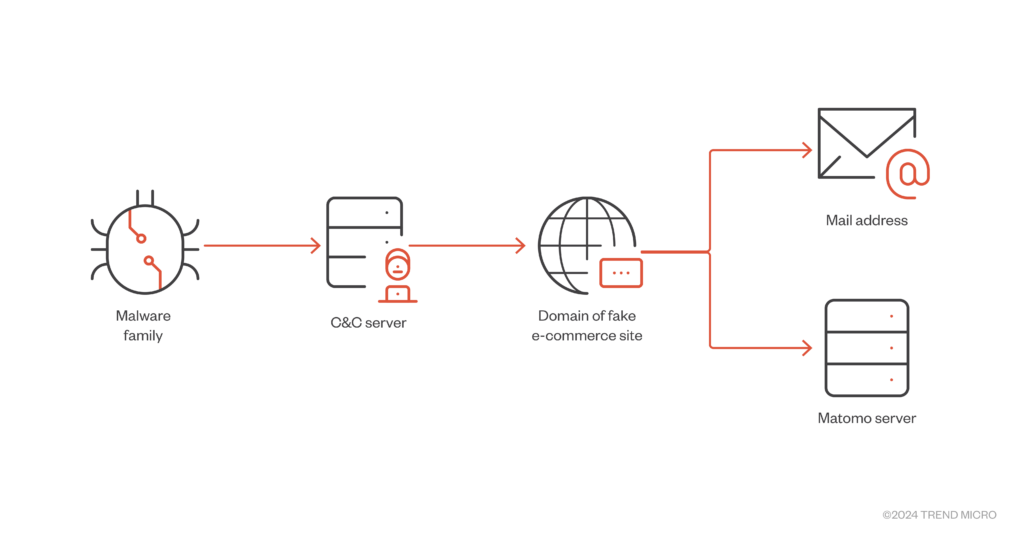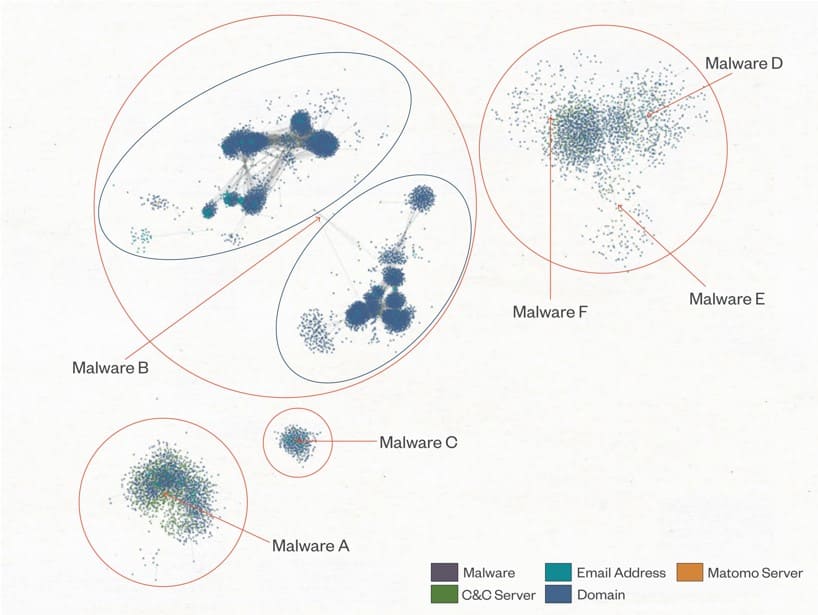Table of Contents
Have you ever searched online for the perfect deal, only to stumble upon a fake e-commerce site? Such scams are growing alarmingly, and at the heart of many of these fraudulent operations lie hidden links in SEO malware operations.
In a groundbreaking collaboration, Trend Micro and Japanese cybersecurity experts have exposed how cybercriminals leverage SEO malware to orchestrate large-scale e-commerce scams. This revelation not only highlights the sophistication of these operations but also sheds light on how users can protect themselves.
Key Takeaway to Hidden Links in SEO Malware:
- Trend Micro’s research uncovers the intricate network of hidden links in SEO malware operations, helping combat fake e-commerce scams and protect online shoppers.
The Rise of SEO Malware: What’s at Stake?
SEO malware, or blackhat SEO malware, is malicious software designed to manipulate search engine results. Threat actors use it to redirect unsuspecting users to fraudulent e-commerce websites, which often steal personal data or financial information.
In Japan alone, reported cases of fake e-commerce sites have skyrocketed. In 2023, over 47,000 fake shopping sites were identified—up from 28,000 in 2022. This staggering increase highlights the urgent need for robust cybersecurity measures.


The Research That Exposed Hidden Links in SEO Malware Operations
Trend Micro partnered with several Japanese organizations, including Kagawa University and the Japan Cybercrime Control Center (JC3), to study the connections between SEO malware families.
By analyzing data from 227,828 fake e-commerce sites and 1,242 command-and-control (C&C) servers, researchers uncovered key insights into these malicious operations.
| Key Findings | Details |
|---|---|
| Number of Malware Families Analyzed | 6 |
| Total Fake Sites Investigated | 227,828 |
| Unique Threat Actor Groups Identified | 4 |
| Shared Infrastructure Insights | Some malware families shared fake shopping site lists across C&C servers. |
These findings show that some criminal groups use a single malware family, while others coordinate across multiple families to maximize their impact.
How Hidden Links in SEO Malware Operations Work
Here’s how SEO malware operates:
- Infecting Websites: Hackers compromise legitimate websites and install SEO malware.
- Manipulating Search Results: The malware generates fake sitemaps to contaminate search engine results with malicious URLs.
- Redirecting Users: When users click on these URLs, they’re redirected to fake e-commerce sites.
- Scamming Users: These sites trick users into providing personal data or making fraudulent purchases.
For example, the Japanese Keyword Hack targets users searching in Japanese, redirecting them to fake e-commerce sites that mimic legitimate retailers.
Protecting Yourself Against SEO Malware
As online shoppers, we can take several steps to avoid falling victim to these scams:
Tips for Shoppers:
- Check URLs Carefully: Look for suspicious domain names or uncommon extensions.
- Beware of Unrealistic Deals: If it sounds too good to be true, it probably is.
- Verify Seller Information: Ensure the site’s details match the company’s official records.
- Use Security Tools: Tools like Trend Micro Check can verify a website’s legitimacy.
For Website Administrators:
Website owners must secure their sites to prevent SEO malware infections:
- Update Regularly: Stay current on software patches and updates.
- Use Strong Passwords: Implement complex, unique passwords for all accounts.
- Monitor Activity: Use tools like Trend Micro Deep Security™ to detect suspicious changes.
Real-World Impact: Fighting Back Against Fake E-Commerce Scams
This isn’t the first time fake e-commerce scams have caused widespread harm. In one instance, a Japanese shopper reported losing over $2,000 after purchasing discounted electronics from a fake site.
Trend Micro’s research aims to prevent such incidents by identifying and blocking fraudulent sites before users fall victim.
Trend Micro’s Role in Combating Hidden Links in SEO Malware Operations
Trend Micro remains at the forefront of cybersecurity innovation. Its Web Reputation Service (WRS) actively blocks fake shopping sites, ensuring safer browsing for users. By collaborating with global partners and leveraging cutting-edge technology, Trend Micro is dismantling the infrastructure that supports these scams.
By understanding hidden links in SEO malware operations, we can all take steps to protect ourselves and support efforts to make the digital world more secure. Stay informed, stay vigilant, and browse safely!
About Trend Micro
Trend Micro is a global leader in cybersecurity solutions, dedicated to making the world a safer place. With a mission to secure today’s connected world, the company provides advanced tools and services to protect individuals and organizations from cyber threats.
FAQs
What is SEO malware?
SEO malware manipulates search engine results to redirect users to malicious sites, often for financial fraud or data theft.
How can I avoid fake e-commerce sites?
Always verify a site’s legitimacy, look for secure HTTPS connections, and use tools like Trend Micro Check.
What is the Japanese Keyword Hack?
It’s a tactic where SEO malware targets Japanese search keywords to redirect users to fake shopping sites.
How does Trend Micro protect users?
Trend Micro’s Web Reputation Service blocks access to identified fake shopping sites, keeping users safe online.





